The fate of IDPs: The cost of fighting militancy in the north
Few Mehsud tribesmen are willing to repatriate to South Waziristan.
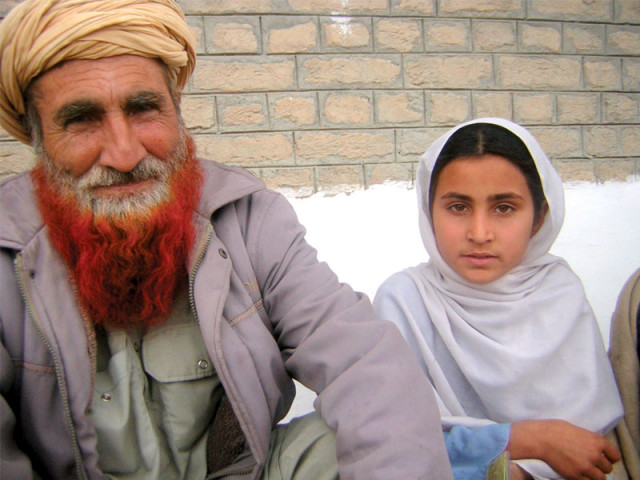
For Diyar Khan Mehsud, life took a dramatic turn on June 19, 2009 when Pakistani troops, backed by airpower and tanks, moved into the South Waziristan tribal region to flush out Taliban insurgents.
Diyar Khan, 30, was among thousands of tribesmen who were uprooted from their homes as a result of the military operation, codenamed ‘Rah-e-Nijaat’. Now, he and his family live in Dera Ismail Khan, a southern district of Khyber-Pakhtunkhwa.
“I’ll not go back until I educate my two brothers who are studying at a local primary school,” said Diyar Khan, who drives a rickshaw to eke out a living.
The displaced tribesmen, living in Tank and Dera Ismail Khan, admit that the military has flushed out militants from South Waziristan Agency, the stranglehold of the outlawed Tehreek-e-Taliban Pakistan which is blamed for most violence in the country.
But apparently some of them have got used to the urban lifestyle and don’t want to go back to their backward region.
Most of them own small businesses in Tank and D I Khan. Long-haired Mehsud tribesmen, who are clearly identifiable by their features and complexion, can be seen driving rickshaws in the two cities.
Stats and repatriation
Going by the stats of the Fata Disaster Management Authority (FDMA), over 41,000 families were displaced by fighting in South Waziristan. Of these, 26,447 households settled in Tank, 12,854 in Dera Ismail Khan, and 2,262 in other parts of the country.
Repatriation of these tribesmen, officially called internally displaced persons (IDPs), started on December 4, 2010. In the first three phases, 6,580 families have been repatriated to their hometowns in Waziristan, thus far.
“The fourth phase is likely to start by the end of this month,” the FDMA coordinator for South Waziristan, Saeed Umar, told The Express Tribune. “About 2,000 families, out of the remaining 34,983, will be repatriated in this phase,” he added.
Since there is no shelter camp for IDPs in Tank and D I Khan, the displaced families are staying either with their relatives or in rented houses.
“I would have returned to South Waziristan, had my home not been destroyed during the military operation,” said Raham Jan Mehsud, who now lives with his two wives and six children in a two-room rented house in Tank.
“But still, I’m willing to return to my native village, if the government rebuilds my home,” said 60-year-old Raham Jan, who hails from the Sarwakai area of South Waziristan.
Four of his sons are studying in an Islamic seminary in Frontier Region Tank. “I could not afford to feed and clothe them properly, therefore I sent them to the seminary, where they get free food and clothes,” he said.
Army efforts hailed
Each repatriating IDP family is provided with free transportation, food items sufficient for six months, tents and Rs25,000 in cash.
The military says all the families would be repatriated with dignity. “The [Pakistan] Army is providing them security and working on other projects designed to facilitate the returnees,” a spokesperson for the Inter-Services Public Relations (ISPR) told The Express Tribune.
Tribal elder Malik Lal Khan Mehsud is all praise for the military but he was not happy with civil authorities. “The political administration and non-governmental organisations are involved in the embezzlement of the funds meant for the IDPs,” he added.
Vulnerable tent villages
Many tribesmen are living in tent villages in Faqirabad, Raghzia, Nursrize and Sandhar areas of Tank, where they are vulnerable to the chilly weather being in close proximity to the Suleman mountain range.
In February 2011, wife of tribesman Din Badshah Langarkhel and mother of Mushtaq Shamankhel died of the freezing cold in their tents which have no heating arrangements.
Atlas Khan Mehsud, a tent village dweller, said that since most families were not registered with the authorities, they did not get free food rations.
Published in The Express Tribune, March 15th, 2012.


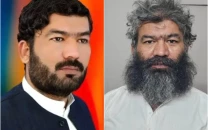
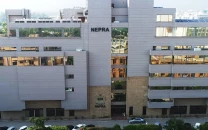

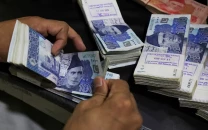
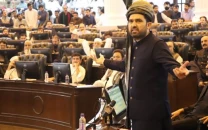


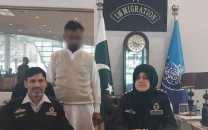

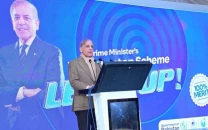







COMMENTS
Comments are moderated and generally will be posted if they are on-topic and not abusive.
For more information, please see our Comments FAQ